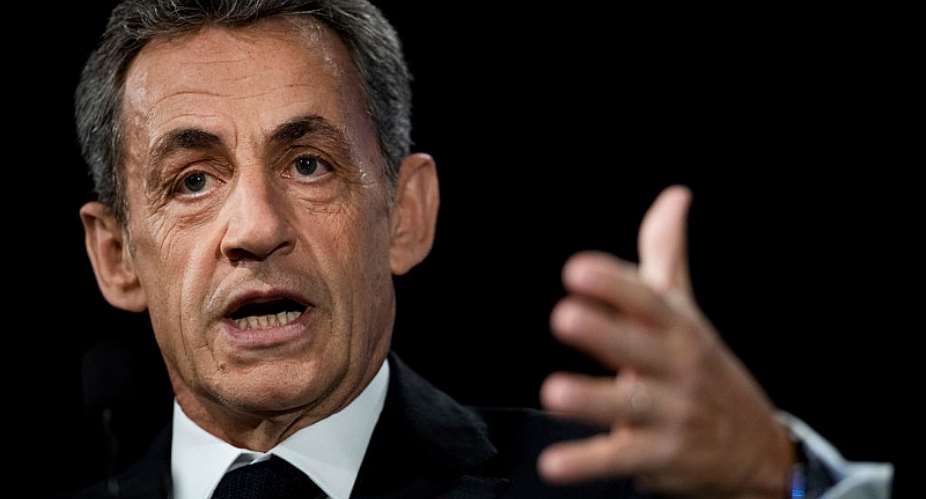French former president Nicolas Sarkozy will appeal his conviction for corruption and abuse of power, which saw him handed a three-year prison sentence on Monday, his lawyer has announced.
Sarkozy's lawyer Jacqueline Laffont described the verdict as "extremely severe" and "totally unfounded and unjustified".
She added that the former president was "calm but determined" to continue his efforts to prove his innocence.
A French court on Monday convicted the former president on charges of corruption and abuse of office, handing him a three-year prison sentence with two years suspended.
Sarkozy was found guilty of offering to help a judge obtain a senior job in Monaco in exchange for inside information on an inquiry into the former president's campaign finances.
The prosecution had asked for a four-year prison term, with two years suspended. The crime of corruption of an official carries a maximum sentence of 10 years.
Taking into account the two years suspended, the sentence of one year in jail means it is unlikely Sarkozy will physically go to prison, a punishment that in France usually applies to jail terms in excess of two years.
The court said the 66-year-old, who was president from 2007 to 2012, would be entitled to request to be detained at home, but could be obliged to wear an electronic bracelet.
Sarkozy has consistently denied any attempt at corruption.
Serious breaches by a president and lawyer
The court said the facts were “particularly serious” given that they were committed by a former president who used his status to help a magistrate who had served Sarkozy's personal interests. In addition, as a former lawyer, he was “perfectly informed” about committing an illegal action, the court said.
Only one other French president, Sarkozy's political mentor Jacques Chirac, was put on trial after leaving office, but he was excused from having to attend his 2011 corruption trial because of ill health.
Sarkozy's two co-defendants, the lawyer Thierry Herzog and former senior judge Gilbert Azibert, were also found guilty and given the same sentence as Sarkozy.
Prosecutors say Sarkozy and Herzog tried to bribe judge Azibert over an inquiry into claims the former leader had received illicit payments from L'Oréal heiress Liliane Bettencourt during his successful 2007 presidential campaign.
A case based on tapped phone conversations
The state's case was based on wiretaps of conversations between Herzog and Sarkozy, with prosecutors accusing him of "using secret telephone lines" to cover up his attempt to infiltrate the court.
Prosecutor Céline Guillet said it had been established "with certainty" that judge Azibert transmitted confidential information about the Bettencourt case to his friend Herzog.
One conversation "overwhelmingly" showed that Sarkozy had promised to intervene to get Azibert a post in Monaco, she said.
Sarkozy's lawyer Jacqueline Laffont lashed out at the flaws and "emptiness" of the prosecutor's accusations, with the defence also claiming that the tapped conversations had been just "chats between friends".
Even a failed attempt at corruption is a crime
Azibert, who was a senior adviser at France's highest appeals court at the time, never got the job in Monaco.
Sarkozy's lawyers argued this pointed to the absence of corruption, but prosecutors said French law makes no distinction between a successful attempt at corruption and a failed one.
Nicolas Sarkozy will face another trial later this month along with 13 other people on charges related to the alleged illegal financing of his 2012 presidential campaign.





 Akufo-Addo commissions Phase II of Kaleo solar power plant
Akufo-Addo commissions Phase II of Kaleo solar power plant
 NDC panics over Bawumia’s visit to Pope Francis
NDC panics over Bawumia’s visit to Pope Francis
 EC blasts Mahama over “false” claims on recruitment of Returning Officers
EC blasts Mahama over “false” claims on recruitment of Returning Officers
 Lands Minister gives ultimatum to Future Global Resources to revamp Prestea/Bogo...
Lands Minister gives ultimatum to Future Global Resources to revamp Prestea/Bogo...
 Wa Naa appeals to Akufo-Addo to audit state lands in Wa
Wa Naa appeals to Akufo-Addo to audit state lands in Wa
 Prof Opoku-Agyemang misunderstood Bawumia’s ‘driver mate’ analogy – Miracles Abo...
Prof Opoku-Agyemang misunderstood Bawumia’s ‘driver mate’ analogy – Miracles Abo...
 EU confident Ghana will not sign Anti-LGBTQI Bill
EU confident Ghana will not sign Anti-LGBTQI Bill
 Suspend implementation of Planting for Food and Jobs for 2024 - Stakeholders
Suspend implementation of Planting for Food and Jobs for 2024 - Stakeholders
 Tema West Municipal Assembly gets Ghana's First Female Aircraft Marshaller as ne...
Tema West Municipal Assembly gets Ghana's First Female Aircraft Marshaller as ne...
 Dumsor is affecting us double, release timetable – Disability Federation to ECG
Dumsor is affecting us double, release timetable – Disability Federation to ECG
